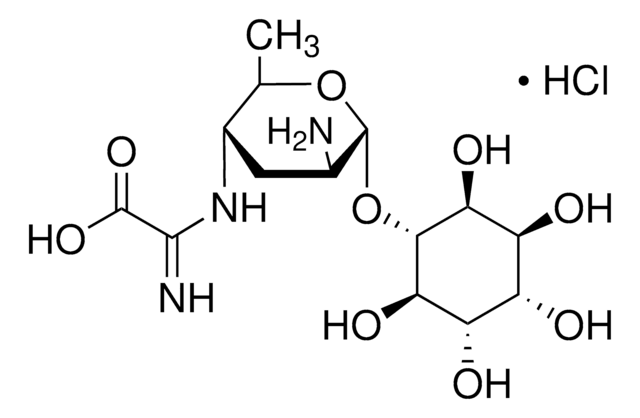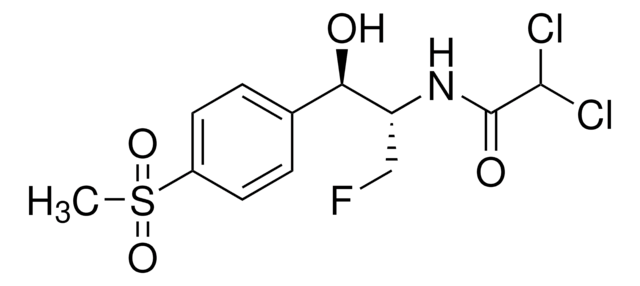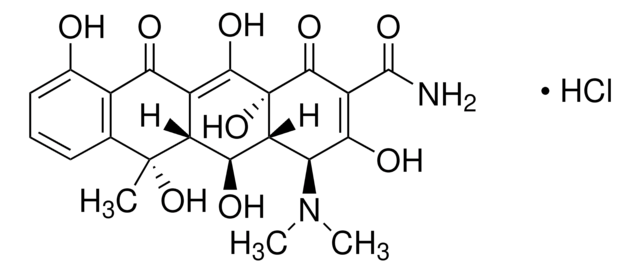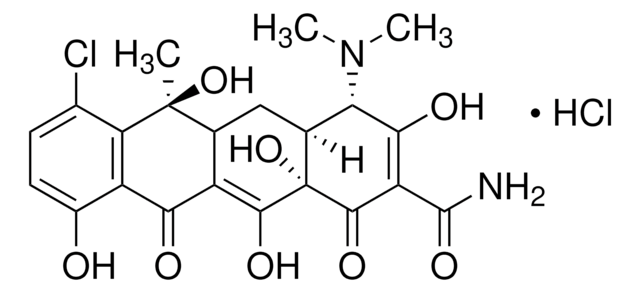O4636
Oxytetracycline dihydrate
Assay (anhydrous basis) 95.0%-102.0%
Synonym(s):
5-Hydroxytetracycline dihydrate, Oxytetracycline, Oxytetracycline Anhydrous
About This Item
Quality Level
antibiotic activity spectrum
Gram-negative bacteria
Gram-positive bacteria
Mode of action
protein synthesis | interferes
SMILES string
O.[H][C@@]12[C@@H](O)[C@@]3([H])C(C(=O)c4c(O)cccc4[C@@]3(C)O)=C(O)[C@]1(O)C(=O)C(C(N)=O)=C(O)[C@H]2N(C)C
InChI
1S/C22H24N2O9.H2O/c1-21(32)7-5-4-6-8(25)9(7)15(26)10-12(21)17(28)13-14(24(2)3)16(27)11(20(23)31)19(30)22(13,33)18(10)29;/h4-6,12-14,17,25,27-29,32-33H,1-3H3,(H2,23,31);1H2/t12-,13-,14+,17+,21-,22+;/m1./s1
InChI key
IBZHEBHGZFICKS-IFLJXUKPSA-N
Looking for similar products? Visit Product Comparison Guide
General description
Application
Biochem/physiol Actions
Mode of Action: Inhibits protein synthesis (elongation) by preventing binding of aminoacyl-tRNA to the 30S subunit.
Antimicrobial spectrum: Gram-negative and Gram-positive bacteria.
Mode of Resistance: Active efflux, ribosome protection, tetracycline inactivation.
Analysis Note
Other Notes
Signal Word
Warning
Hazard Statements
Precautionary Statements
Hazard Classifications
Aquatic Chronic 2 - Repr. 2
Storage Class Code
11 - Combustible Solids
WGK
WGK 3
Flash Point(F)
Not applicable
Flash Point(C)
Not applicable
Personal Protective Equipment
Certificates of Analysis (COA)
Search for Certificates of Analysis (COA) by entering the products Lot/Batch Number. Lot and Batch Numbers can be found on a product’s label following the words ‘Lot’ or ‘Batch’.
Already Own This Product?
Find documentation for the products that you have recently purchased in the Document Library.
Customers Also Viewed
Our team of scientists has experience in all areas of research including Life Science, Material Science, Chemical Synthesis, Chromatography, Analytical and many others.
Contact Technical Service






